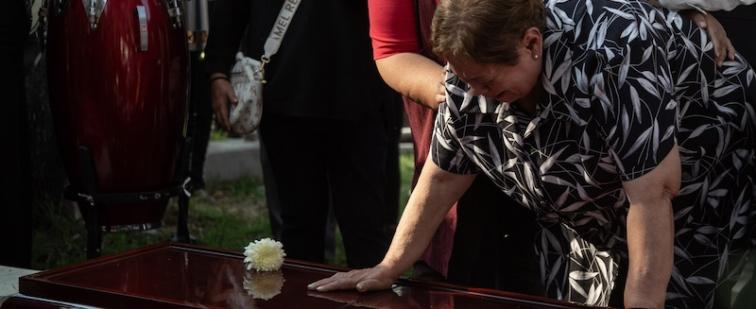Home
Several high-ranking Colombian army officers recently dismissed over the practice of executing innocent civilians to pump up the army's guerrilla-body-count numbers received military training at the U.S. Army's School of the Americas (SOA). Some of the commanders even served as teachers at the SOA, and despite well-documented abuses, their units continued to receive millions in U.S. military assistance under Plan Colombia.
Since the Colombian government bombed a guerrilla camp on Ecuadoran soil on March 1, it has orchestrated a highly effective media campaign backed by material allegedly found on laptops belonging to a high-ranking member of the Revolutionary Armed Forces of Colombia (FARC). The laptops were used almost immediately after the raid to implicate both the Ecuadoran and Venezuelan governments in drug-trafficking and “terrorist” connections to the FARC. A NACLA investigation sponsored by the Samuel Chavkin Investigative Fund finds that Colombia’s media campaign has been based on dubious evidence at best, and that the “magic laptops” are being used to deflect criticism of Colombia’s violation of Ecuadoran sovereignty, distract the public from a domestic political scandal, and justify the government’s policy of total war against the FARC.
 |
By scheduling a meeting with movement representatives for November 2, the government succeeded in diffusing the momentum gained in recent weeks by indigenous protests. But behind the headlines a profound process is underway: The indigenous protests are only the most visible sign of a growing coalition of social movements, including labor unions, Afro-descendant organizations, campesino unions, and human rights and women's groups. The coalition is up against the diametrically opposed economic and security doctrines of the Uribe administration and the Colombian establishment.
 |
The indigenous U'wa of northeast Colombia are battle-hardened experts at fending off greedy oil companies' attempts to drill on their lands. Up until now, these corporations have been foreign, but the latest threat comes from the homegrown Ecopetrol, Colombia's partly state-owned energy company. As government and corporate officials recently announced new plans for expanded oil explorations, the U'wa have once again started to hunker down, preparing for the long battle ahead.
 |
The Latin America Solidarity Coalition Coordinating Committee has adopted the following talking points for use by local activists to educate their communities and influence opinion makers and elected officials. With a new administration soon to be inaugurated in Washington, DC, it is time for progressive activists to demand a new foreign policy toward Latin American and the Caribbean.
 |
At the end of his six-month tour at the U.S. detention facility in Guantánamo Bay, Cuba, Matthew Diaz made a decision that would change his life—and possibly that of hundreds of prisoners held in the Pentagon's legal vacuum. In return, Diaz was fired, jailed, and had his legal license suspended. Since blowing the whistle on the illegal detainment of so-called "enemy combatants," Diaz's life has been a daily struggle.
 |
John McCain, who has harshly criticized the idea of sitting down with "dictators" without pre-conditions, appears to have done just that. In 1985, McCain traveled to Chile for a friendly meeting with Chile's military ruler, General Augusto Pinochet, one of the world's most notorious violators of human rights credited with killing more than 3,000 civilians and jailing tens of thousands of others.
The third Americas Social Forum (ASF) took place in Guatemala City from October 7 to 12, 2008. Thousands of people and organizations, from every corner of the American hemisphere, gathered in the campus of the University of San Carlos, Guatemala, to participate, debate, exhibit, network, and develop progressive alternatives. As usual for any World Social Forum event, the ASF process in Guatemala was not without internal debates.
After tens of thousands of marchers arrived to La Paz, Bolivia’s four main political parties reached an agreement on October 20 to hold a national referendum on a proposed new constitution that would "refound" the Andean nation. If the accord holds, Bolivia will vote on the draft constitution on January 25, 2009, or 13 months after the country’s Constituent Assembly first presented the document to congress.
 |
Reggaetón made its electoral debut this year. First, Daddy Yankee turned heads when he publicly endorsed Republican presidential candidate John McCain. Barack Obama followed suit highlighting reggaetoneros support for the Democratic ticket in videos. But it is in Puerto Rico that reggaetón is making the largest political waves. Although dismissed by some as apolitical party music, this electoral season confirms reggaetón's politicization. What that means, exactly, depends on who is doing the politicking.











